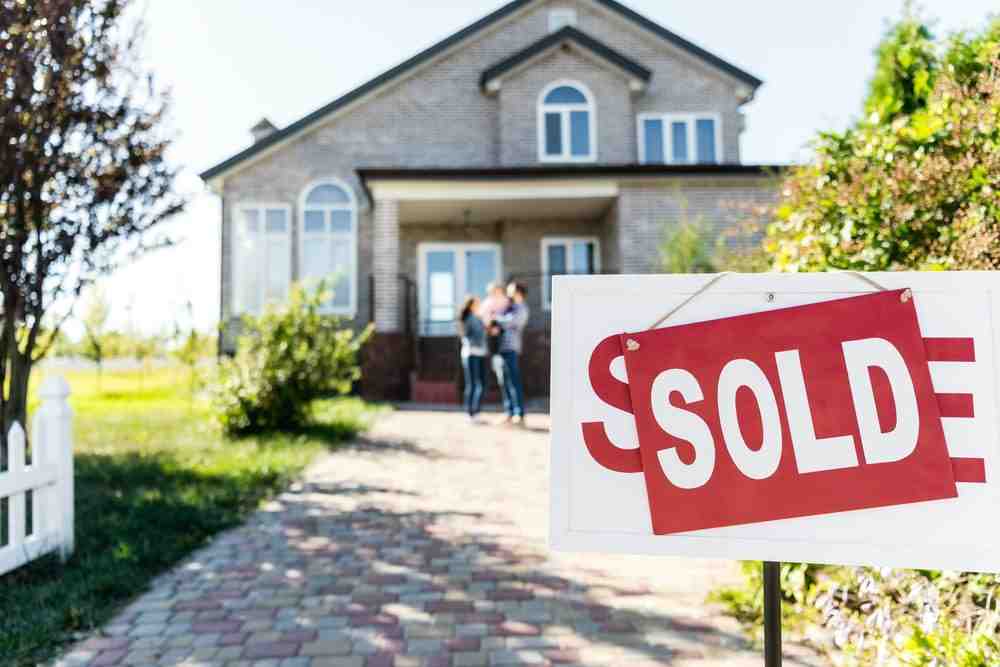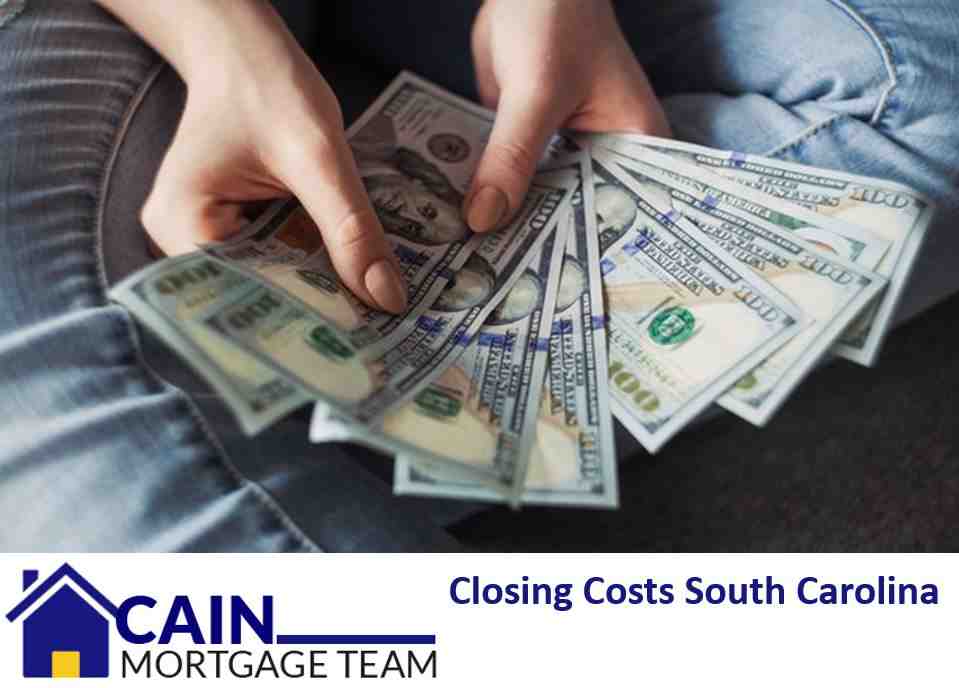If the buyer requests a reduction in the bid price or requests a closing cost credit, the seller doesn’t really care. It’s the same anyway. As for the buyer, the benefit of a credit instead of a reduction in the sale price is that it will allow the buyer to have cash on hand to make repairs, and so on.
How do I calculate my closing costs?
Contents

How much are the closing costs? The average closing costs for the buyer range from 2% to 5% of the loan amount. That is, in a $ 300,000 home purchase, you would pay $ 6,000 to $ 15,000 in closing costs. The most cost-effective way to cover your closing costs is to pay them out-of-pocket as a one-time expense.
How do I calculate closing costs? Closing costs typically range from 3% to 6% of the purchase price of the home.1 Therefore, if you buy a $ 200,000 home, your closing costs could range from $ 6,000 to $ 6,000. the $ 12,000. Closing rates vary depending on your status, type of loan, and mortgage lender, so it’s important to pay close attention to these rates.
What are 3 typical closing costs?
Although each loan situation is different, most closing costs are usually divided into four categories: Points of origin commissions and lender. Third party fees such as appraisal, title, taxes and credit report fees. Prepaid interest, taxes and mortgage insurance.
What are typical closing costs?
Generally speaking, you’ll want to budget between 3% and 4% of the purchase price of a resale home to cover closing costs. Therefore, in a home that costs $ 200,000, your closing costs could be between $ 6,000 and $ 8,000.
What are 3 things that make up closing costs?
Closing costs are commissions paid to cover the costs of ownership, insurance, and mortgages incurred by your lender during the processing of your loan, such as home appraisal costs and title insurance. Lenders are required by law to provide a loan estimate within 3 business days of receiving your application.
How much are closing costs on a $300 000 home?
The total closing costs of buying a $ 300,000 home could cost between $ 6,000 and $ 12,000, or even more. Normally, funds cannot be borrowed, as this would increase the borrower’s loan ratios to a point where they may no longer meet the requirements.
How much are closing costs on a $250 K House?
These rates, paid to third parties to help facilitate the sale of a home, usually reach between 2% and 7% of the purchase price of the home. So in a $ 250,000 home, you can expect the amount to run between $ 5,000 and $ 17,500.
What is 3% of closing costs?
Closing costs are the processing fees you pay to your lender when you close your loan. The closing costs of a mortgage loan are usually equal to 3%, 6% of the total balance of your loan. Evaluation fees, attorney’s fees, and inspection fees are examples of common closing costs.
How much should I budget for house closing costs?
Most experts agree that you should try to book approximately 3% of the purchase price of your home to cover closing costs. Although down payment and mortgage default insurance are considered closing costs, they are not considered for the purposes of the 3% calculation.
Can you roll closing costs into your mortgage?

Most lenders will allow you to add closing costs to your mortgage when you refinance. This is usually not the kind of lending that you can afford to include closing costs on your mortgage. It is more important for the type of loan you get: purchase or refinancing.
Can you incorporate closing costs into a purchase mortgage? Many mortgage lenders offer what they call “no-closing” loans: mortgages in which you can accrue your closing costs instead of paying them in advance. As an investor, these loans can be tempting. After all, they reduce the amount of money you need in advance to buy a property.
Can my closing costs be included in my loan?
Your down payment can be as low as 3.5% of the purchase price, and most of your closing costs and commissions can be included in the loan. … The borrower also has the option to pay some closing costs out of his pocket. In situations where the seller will pay some of the closing costs, another set of FHA loan rules comes into play.
Can down payment and closing cost be included in mortgage?
Do closing costs include a down payment? No, your closing costs will not include any down payment. But some lenders will combine all the funds needed at closing and call it “closing cash,” which groups the closing costs and the amount of the down payment, not including the actual money.
Can you add closing costs to loan?
Many mortgage lenders offer what they call “no-closing” loans: mortgages in which you can accrue your closing costs instead of paying them in advance.
Can down payment and closing cost be included in mortgage?
Do closing costs include a down payment? No, your closing costs will not include any down payment. But some lenders will combine all the funds needed at closing and call it “closing cash,” which groups the closing costs and the amount of the down payment, not including the actual money.
How much are closing costs on $150000?
How much are the closing costs? According to Zillow.com, home buyers should expect to pay between 2 and 5 percent of the purchase price of their home on foreclosure costs. So if your home costs $ 150,000, you could pay between $ 3,000 and $ 7,500 in closing costs.
What are typical closing costs?
Explanation of Closing Costs Closing costs are one-time commissions associated with the sale of a home, which are usually provided to the buyer to pay three days before the purchase of the home is completed. Most experts agree that you should try to book approximately 3% of the purchase price of your home to cover closing costs.
What costs can be rolled into mortgage?
Many borrowers include certain commissions on their mortgages as a way to avoid high upfront costs. Types of fees that can be incorporated include loan fees, such as loan generation fees; government fees, such as filing fees, administrative costs, and certain taxes; and attorney’s fees.
What costs are due at closing?
What are the closing costs? Closing costs are commissions paid to cover the costs of ownership, insurance, and mortgages incurred by your lender during the processing of your loan, such as home appraisal costs and title insurance. Lenders are required by law to provide a loan estimate within 3 business days of receiving your application.
What are included in closing costs for buyer?
Closing costs refer to the charges and fees that are paid when the purchase of a home is completed. … Typically, the buyer’s costs include mortgage insurance, homeowners insurance, appraisal fees, and property taxes, while the seller covers the costs of transferring property and pays a commission to their real estate agent.
What are some examples of closing costs?
Examples of Closing Costs Typical closing costs include loan application fees, points, prepaid homeowners insurance, an appraisal fee, inspection fees, transfer taxes, trust fees, attorney fees, fees registration, prepaid interest, prepaid private mortgage insurance, title and title insurance. close costs.
How do I convince seller to pay closing costs?
1. Pay the full asking price. If you want to propose seller concessions, avoid making a lowball bid. Instead, bid for the full asking price of the property to show that you are seriously interested in buying the home and that you are not just trying to take advantage of the seller.
Is it okay to ask the seller to pay the closing costs? By having the seller pay for certain items in your closing costs, it allows you to make a higher bid. Therefore, you will actually pay your closing costs for the life of the loan rather than in advance at the closing table, as they are now incorporated into the amount of your loan.
How common is it for a seller to pay a buyer’s closing cost?
Although the closing costs of the buyer and seller vary, they are usually predictable. Sometimes the seller may be asked to pay some closing costs instead of the buyer, but it is important to note that they already pay about 6 percent of the total sale in agent fees and commissions.
Why would a buyer ask for closing costs?
Higher Purchase Price Buyers generally consider closing costs in their bid when they ask sellers to pay the costs. … When you agree to pay the closing costs, you end up with a higher purchase price of the property than the buyer would have paid if he had not paid the closing costs.
What does it mean to pay buyers closing costs?
Closing costs refer to the charges and fees that are paid when the purchase of a home is completed. … Typically, the buyer’s costs include mortgage insurance, homeowners insurance, appraisal fees, and property taxes, while the seller covers the costs of transferring property and pays a commission to their real estate agent.
Should seller pay buyers closing costs?
In short, the closing costs of the buyer and seller are paid based on the terms of the home purchase agreement, which both parties agree to. As a general rule, the closing costs of the buyer are substantial, but the seller is often also responsible for some closing costs.
Are sellers closing costs negotiable?
Although buyers pay most of the closing costs, you can try to negotiate some concessions from the seller (or credits) after they have accepted your offer in-house. For example, you can ask the seller to pay an appraisal fee or a title transfer fee.
Is it normal for seller to pay closing costs?
Sellers often pay part or all of the buyer’s closing costs. For home buyers struggling to pay their down payment, moving costs, and closing costs, asking the seller to cover those costs is a good way to minimize your out-of-pocket expenses. Lenders may also pay your closing costs.
Are sellers still paying closing costs?
What closing costs does the seller pay? Closing costs are shared between buyer and seller. Although the buyer usually pays more than the closing costs, the seller will usually have to cover his end of local taxes and city taxes.